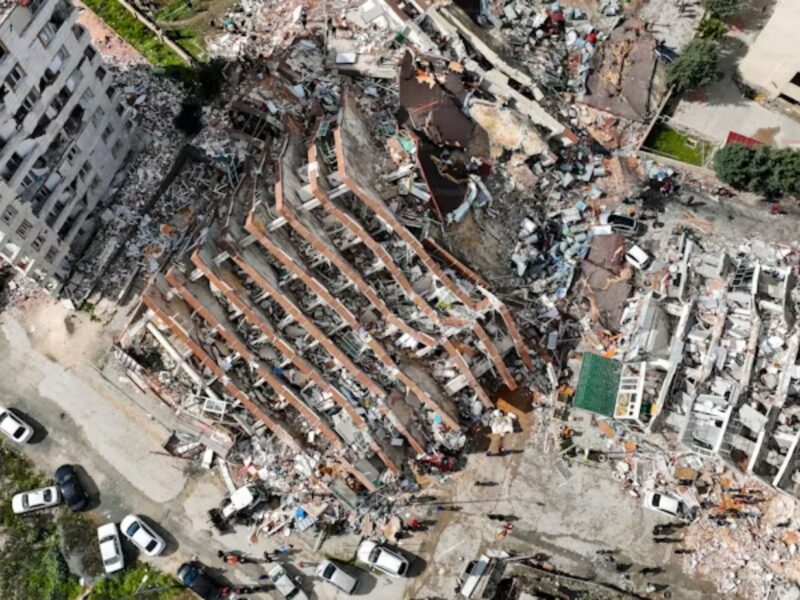In the wake of a disaster, selling a home can seem like a daunting task. Whether it’s a natural event like a hurricane or flood or an unforeseen incident like a fire, the journey to selling a damaged home can feel overwhelming. However, for those ready to make a fresh start, there are practical steps that can help turn a challenging situation into a positive transition. This guide provides an in-depth look at key factors for homeowners considering selling their property after a disaster, ensuring they’re prepared for the unique challenges and decisions ahead.
Quantifying Loss and Repair Needs
The first crucial step in selling a home affected by disaster is assessing the full extent of the damage. Hiring a professional home inspector is essential for identifying structural issues, foundation integrity, plumbing, electrical systems, and roofing conditions. While it’s possible to estimate some repair costs independently, professional assessments will provide a comprehensive view of what is needed. Additionally, some damages, particularly those resulting from natural disasters, can worsen over time if not properly addressed. With a clear understanding of repair costs, you can make an informed decision about whether it’s worth investing in repairs to increase the home’s value or if it’s better to sell the property.
Working with insurance companies is equally critical. If you have homeowner’s insurance, begin by reaching out to the insurance company as soon as possible to discuss coverage, file claims, and understand how they handle disaster-related damages. Documenting all repairs, quotes, and invoices will also help when discussing your home’s market value with prospective buyers, showing them what repairs have been completed or are still needed.
Preparing for Market with Full Disclosure
When putting your home on the market post-disaster, transparency is essential. Laws often require disclosure of any known damage or repair needs, and full disclosure can also help build trust with potential buyers. Be prepared to share information on any completed repairs, as well as any remaining work required. Many buyers will be wary of purchasing a property that has recently undergone repairs, so providing clear documentation is a proactive step that can ease concerns. It’s also wise to keep records of all communications with repair companies, including estimates and invoices, as they can help validate the work completed and offer potential buyers a clearer picture of the property’s condition.

In terms of pricing, remember that post-disaster homes may initially attract lower offers, especially if major repairs are still needed. However, positioning the home accurately in the market by highlighting completed repairs or upgrades can still attract interest. Buyers may seek discounts but will appreciate the transparency and detailed history of the home’s repairs, which can positively impact their perception of its current market value.
Exploring Cash Purchaser Options
One strategy for homeowners looking for a quicker sale is to consider selling to cash buyers, as these investors specialize in purchasing homes in varying conditions, including those impacted by disasters. With many cash buyers, such as Halo Home Buyers, the transaction process can be significantly streamlined compared to traditional sales. This can be especially beneficial if you’re dealing with extensive repairs or if you need to relocate quickly. Cash buyers often purchase homes in any condition, meaning you won’t need to worry about extensive repairs or renovations beforehand.
The advantage of working with these companies lies in their flexibility, as they typically handle all aspects of the sale, including paperwork and closing costs. This simplified process can ease the stress of navigating a post-disaster home sale, allowing you to focus on securing your next steps instead of managing a lengthy list of repairs. While you may receive a lower offer than the traditional market rate, the ease and speed of the transaction may be worth the trade-off.
Setting Realistic Expectations with Purchasers
Post-disaster home sales can attract a mix of potential buyers, from those looking for investment opportunities to individuals willing to put in some renovation work. Be prepared for potential buyers to ask detailed questions about the disaster, its impact, and the repairs done. With full transparency, you can set realistic expectations and build credibility. Additionally, consider working with a real estate agent experienced in selling damaged properties, as they can help you navigate buyer concerns and effectively communicate your property’s condition and potential.

Since many buyers may come in with lower-than-market offers, a flexible approach to negotiations can also be advantageous. Sellers should be prepared to weigh offers based on factors like timing, willingness to take on repairs, and payment terms. An experienced agent can help you assess each offer’s potential and negotiate the best terms, whether it’s a fast close, minimized contingencies, or a cash deal.
Considering Community and Long-Term Market Recovery
Disasters impact not only individual homes but also the broader community, affecting property values, buyer interest, and local demand. If a widespread disaster has affected your area, research the regional recovery timeline to understand how it might influence your sale. Depending on how quickly services, utilities, and infrastructure are restored, the local housing market may see shifts in demand and pricing. Working with a real estate agent who has a solid grasp of the local market’s response to disasters can offer insights into when to list and what to expect.
Some sellers may find it beneficial to wait until the local market stabilizes to achieve a higher price. In contrast, others may prioritize an immediate sale to avoid potential long-term property devaluation. In either case, understanding your community’s recovery efforts will allow you to make the best decision for your specific situation.
Creating a Fresh Start and Moving Forward
While selling a home in the aftermath of disaster can be complex, it can also be an opportunity for a fresh start. By handling the sale with transparency, flexibility, and a clear understanding of the market, sellers can navigate this process with confidence. Focusing on the future—whether that means moving to a new city or finding a more resilient property—can help bring a sense of closure and purpose.
Despite the challenging circumstances, remember that with the right support, a post-disaster sale doesn’t have to be overwhelming. From understanding repair needs to considering alternative buyer options and working closely with professionals, these steps can help you sell your home and begin a new chapter with peace of mind.






